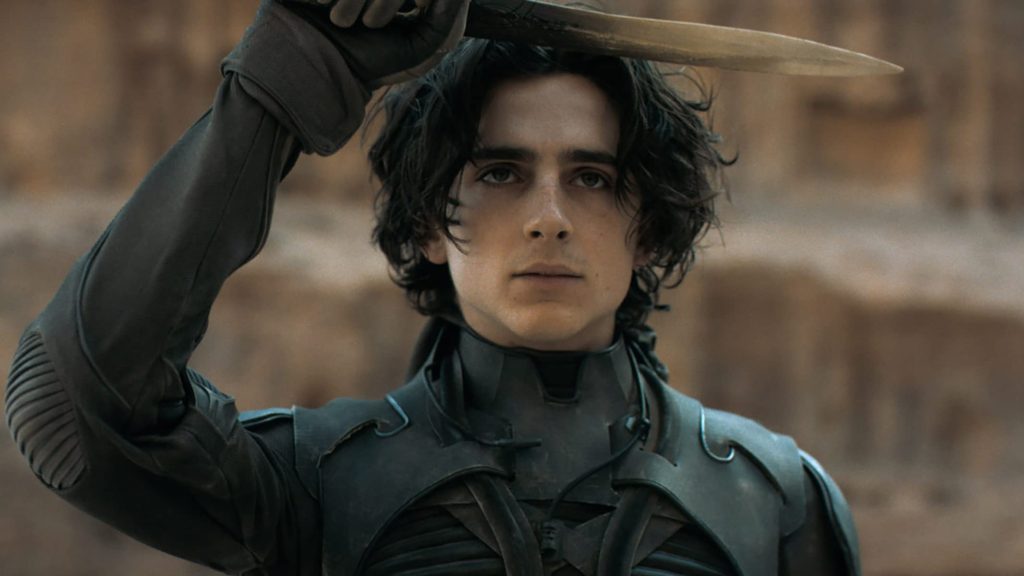What can the Dune movie’s Paul Atreides Teach You About Planning for the Future?
Stop me if you’ve heard this one. Bran Stark, Stephen Strange, and Paul Atreides, from the 2021 film Dune, walk into a bar (roll into a bar??)….no? Nothing?? I mean, here you’ve only got three of the most capable and fascinating pre-cognisant personalities in all of pop culture about to enter the same space, distinct fandoms be damned. Other than the space-time continuum going kablooey, what would happen in this situation? What would they do? What would they talk about?
I like to imagine Paul, the protagonist of the Dune novel, offering to spice Bran’s spiced wine with something a little extra, hmm, spicy…….know what I mean?? Maybe Bran and ole Stephen bond over their third eyes and to compensate, Paul uses The Voice to force them to buy a round of drinks for the house, stealthily slipping the Eye of Agamotto from Strange’s neck, not realizing that Stephen anticipated this move and has encased them in a mirror verse, from which Paul cannot escape to use the aforementioned Eye…
Or maybe they just split a pitcher of ale and share stories of the absolute weirdest future realities they’ve seen, I dunno.
Dune Kwisatz Haderach
What I DO think is super interesting is how all of these characters, as well as others from tv and movies have entered the collective consciousness at this time. What is so fascinating about the idea of being able to see the future? Or rather, once you get past the obvious upsides, what are the other potential benefits, pitfalls, hazards, bloody galactic crusades??
What is the Kwisatz Haderach?
In the Dune universe, the Kwisatz Haderach is a male who is able not only to access all the genetic memories of his male and female ancestors, but one who can envision the future and set humanity onto The Golden Path. This is the ultimate goal of the Bene Gesserit order and their centuries long breeding program.
Mapping Out the Future with Lessons from the Dune Book and Dune Movie

“Anything outside yourself, this you can see and apply your logic to it. But it’s a human trait that when we encounter personal problems, these things most deeply personal are the most difficult to bring out for our logic to scan. We tend to flounder around, blaming everything but the actual, deep-seated thing that’s really chewing on us.”
– The Lady Jessica
I cannot tell you how to predict the future. But what we all can, and should be doing more of, is predicting various possible futures. Our own possible futures. In the movie Avengers Infinity War, Dr. Strange pops open the Eye of Agomotto and uses the time stone inside to view various future realities, all of them possible, to determine what the best way forward is.
In the Game of Thrones show, Bran spends a limited amount of time under the tutelage of the Three Eyed Raven, learning to use his gifts to view events from the past. He does however have a bit of the “green sight” also, and takes these murky visions of the future into account so as to better guide his world and those closest to him to meet the oncoming threat of the White Walkers. And from the Dune movie? Paul Atreides, ah Paul…well Paul doesn’t quite know what to do with his gifts does he? At least not yet….
In Denis Villeneauve’s recent adaptation of Frank Herbert’s masterpiece, Paul sees visions which are a result of three things; his genetic makeup stemming from the Bene Gesserit breeding program, his Bene Gesserit training under his mother, the Lady Jessica, and his exposure to the mysterious mind-altering substance known as the spice melange. Paul’s abilities are not as fully formed as Dr. Strange’s (while using the Eye). His visions are more similar to Bran’s green dreams. He sees flashes of possible futures, but doesn’t know what to make of them. He cannot control when he receives them, nor what events or time periods he views.
So what’s a boy messiah to do? Well, we’ll undoubtedly see more about how Paul deals with his situation and his coming future in the next movies, but to oversimplify, he does the best he can at the moment with the information he is given. At times he feels his future is decided, inescapable, and he often feels guilt and dread based on upcoming events. However, he does choose to carry on, making the most of the lessons he’s taken from these glimpses of prescience.
Long Range Planning Defined
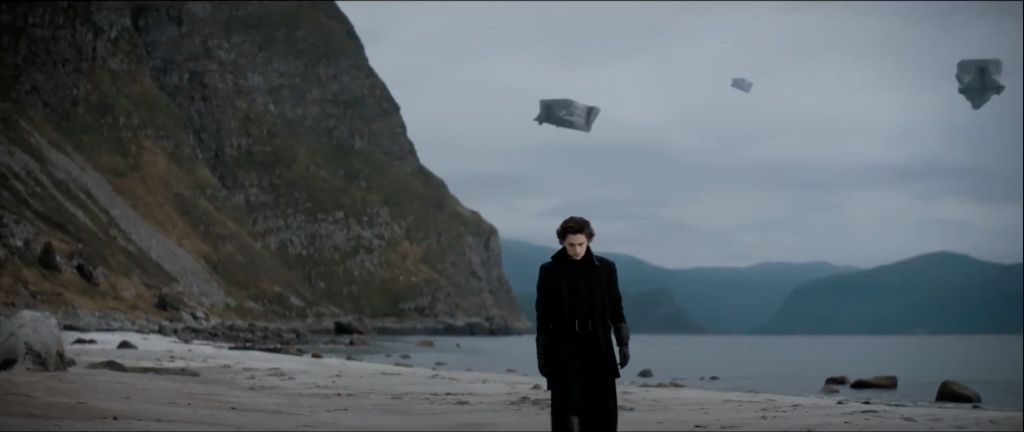
Before we go further I’m going to define what is meant by “long range planning”. As I researched this article I found out that this term is used in business to refer to the future strategic goals of a company. For the purposes of this article, we’re speaking about the future goals of an individual, rather than a group or a business corporation. And so far as “future”, I’m going to say that we’re looking at goals that are 1 year out or more, usually within the 1-10 year time frame.
Also, and this may be implied, but I’m going to state it outright here- These are typically going to be big, lofty goals that are intended to positively impact your life in an obvious, tangible way, i.e. a big promotion, getting accepted into a prestigious school/program, completing a large physical or creative challenge, etc.
SPOILER ALERT
In order to better illustrate how Paul uses long range planning, the remainder of this article references events from the second half of the Dune book as well as the follow up, Dune Messiah. If you haven’t read those yet (go read them!) you carry on at your own peril!
Spoilers for Dune: Part Two Ahead
Later in the Dune novel, and after the events covered in the most recent movie adaptation, Paul begins to hone his prescient abilities with the help of increased exposure to spice as well as the ritual of The Water of Life. By the time we get to the next book, Dune Messiah, he has almost full control of his visions and can view multiple possible futures, over and over, parsing out how they change as he takes various actions.
He comes to realize that if he wants to bring certain things to fruition (escape the jihad, ensure that his future children live) there are certain costs he must bear, unavoidably attached to future events he cannot escape. As he homes in on the best course of action, he becomes so acquainted with his future that he need not even physically see anymore. He sees events in his mind so clearly that he can navigate the waking world as a blind man.
How will we arrange the grains of sand in our own hourglass of time?
Like Paul, our futures are not set. But unlike him, we cannot see fully formed futures and then make decisions about what path to take in order to get exactly what we want. It’s not like the choose-your-own-adventure books I remember from when I was a kid. Side note though- weren’t those pretty awesome?
It’s likely that right now you could sit down and get a decent picture of what the next week looks like. Maybe some meetings at work, a competition or test at school, early Christmas shopping, etc. We even write down a lot of these things so we don’t lose track of them.
It turns out that we do have an idea of what the future holds, but our clarity and focus, especially on the really important stuff, diminish as we look farther and farther out. And of even greater concern, the importance we attach to these big picture items weakens the farther out they are from our present.
Like many of you perhaps, I am in the habit of keeping a journal, and it’s incredibly helpful for keeping me on task, reminding me of things I need to take care of, important dates coming up, etc. These devices, or their digital app equivalents, or even the tried and true giant desktop calendar all can be very useful at guiding us in the moment and just in front of and beyond the present.They help enable us to keep all of our many competing priorities juggling high in the air. They assist us in the moment- with what’s demanding our attention right now, while most likely extending our view only by a few months to a year or so.
“The rush of our busy lives can quietly carve out a gulf separating our actions from our beliefs”
– Ryder Carroll
The above quote illustrates the potential pitfalls of a traditional to-do list/planner. They’re great at helping you triage and manage all the necessary and sometimes bothersome day to day tasks of living our lives. However, if you’re not careful you can completely fill up your life with these sorts of things. Schedule a meeting at work, review the accounts, grocery store shopping, make dentist appointments for the kids, and on and on it goes. And as you check the items off your never ending list you may feel good about your “productivity” and ability to get these things done.
But these things don’t create meaning in our lives. They keep us busy, but they don’t fulfill us. A lot of them are important and necessary. But they don’t excite us. They don’t make us want to get out of bed in the morning. They don’t create a life worth living just on their own. If one wishes to live a life that is purposeful and fulfilling then one needs some perspective.
Dune Kwisatz Haderach
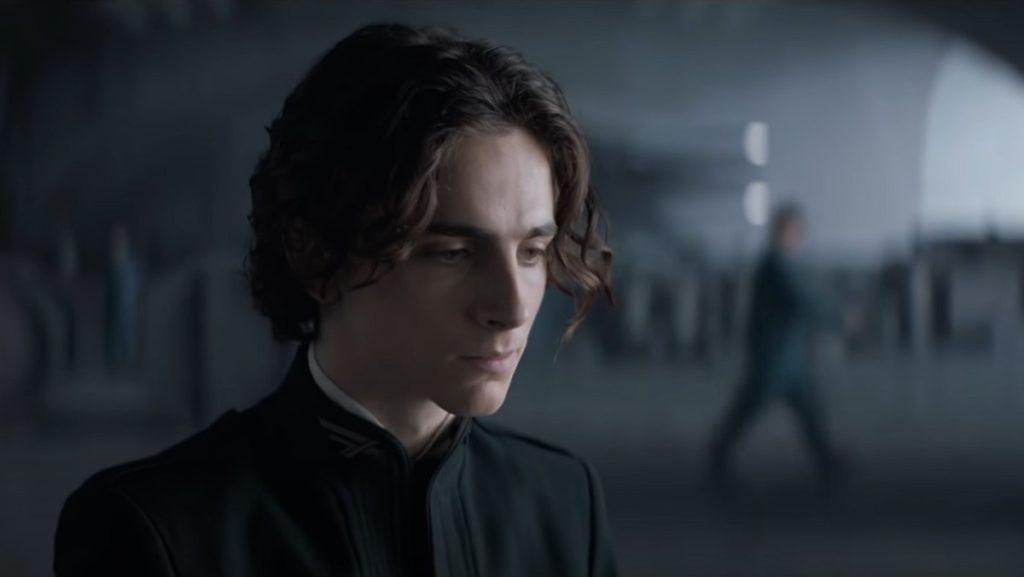
Viewing Alternate Realities
We need to view the different paths our lives might take. But, without something to guide us, all of the grains of sand look the same. We need some sort of clarifying element to point us in the right direction, so that our lives may change for the better. And to seek out this element we must slow down for a moment and reflect.
There is an exercise in the book The Bullet Journal Method, by bullet journal creator Ryder Carroll, that might be familiar to you. It’s a neat, interesting, and quite illuminating exercise, and I encourage you to go through it yourself. The exercise goes like this-
You’re going to write two distinctly different obituaries for yourself. One, will be for the familiar life which will unfold if you continue your current path. In this life you make the expected choices and prioritize comfort over risk. What are the results if you follow this expected path, both good and bad?
The other obituary will be for a life you live if you step outside your comfort zone. One in which you pursue things that excite you the most, prioritizing risk over comfort. What things are possible if you go this route? What could you possibly accomplish?
Be honest with yourself while performing this exercise. Grab your Eye of Agomotto and spend time really thinking through how these two different realities could play out. What is of value to you? What gets you excited about life? What regrets might you have?
At the end of the exercise, read both obituaries…….
Hopefully during the obituary exercise, some of your values and principles were illuminated for you. Take a minute and write down the most important ones. For me these are self-actualization, the pursuit of knowledge in a variety of subjects, agency with my time and energy, and the sharing of knowledge and interests with others that are like minded.
I could write many more articles on The Bullet Journal Method (and plan to!), but for now I’ll just say that even if you don’t currently journal or if you don’t bullet journal specifically, there are still useful techniques from the methodology that you can employ. I’ll refer to these throughout the remainder of this article.
There is a very similar exercise in another well known book, The 7 Habits of Highly Effective People. Here, you imagine your own eulogy as given by various people in your life. I first read Stephen Covey’s masterwork in 2019 and since encountering it, have gotten a lot of value from the ideas and philosophies contained within.
In it, Stephen Covey states that “private victories precede public victories” and the first three habits are dedicated to mastery of self. There’s a lot that goes into those first few habits and I encourage you to read the book for yourself. However, in brief, the first habit says that “you are the creator”.
Put another way, you create your life, rather than merely reacting as life happens to you. It’s about taking ownership of your life and living with intention. It encourages you to make life choices that are informed by, and in line with, your principles and values. The same principles and values you just wrote down.
Habit #1 Be Proactive
Habit #1 of Covey’s 7 Habits is Be Proactive. If he didn’t already, Paul comes to know what he values in life quickly. He faces a trial by fire when the planet of Arrakis is attacked and retaken by the Harkonnens. Call it a brutal and very expedient form of the obituary exercise. His father is killed. He and his mother go on the run and face death at every turn. One of his most trusted mentors is slain defending him. Seeking survival quickly brings into focus Paul’s most closely held principles. And once he drinks the Water of Life, it provides clarity as to how to proceed with Habits #2 and #3.
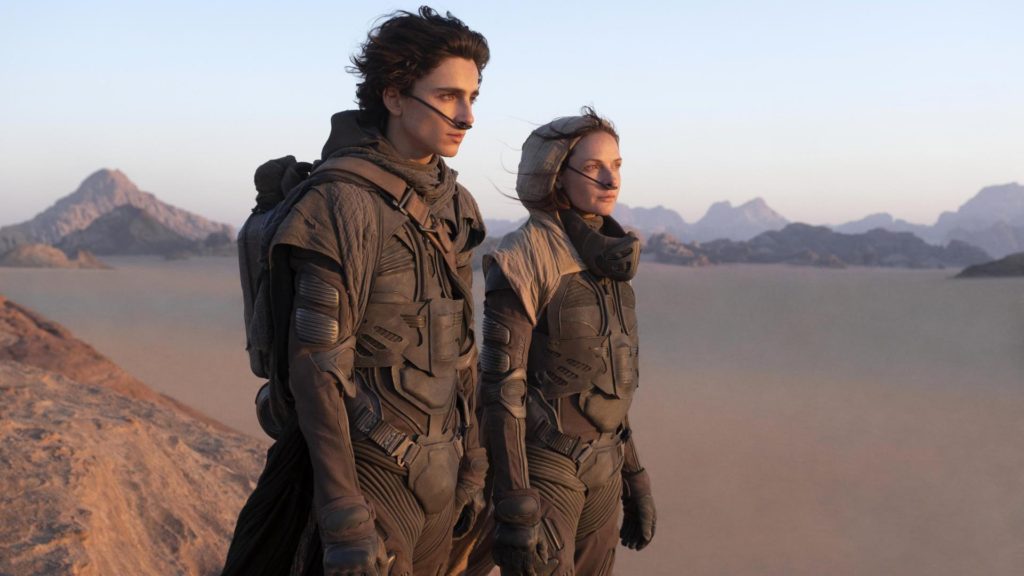
In the first novel, Dune, Paul’s immediate values are survival for himself and his mother, exploration of the nature of his prescience, and to visit retribution on those who destroyed his father and household. He also wishes mightily to avoid the jihad waged in his name, but strongly senses that it is unavoidable. Since he can’t avoid it, his next best course of action is to end it as soon as possible. So what are Paul’s principles then? Family, honor, exploration of the self (self-improvement), and mitigation of violence (at least where the jihad is concerned).
If you’ve performed the obituary exercise and have made note of those values that truly speak to you, then you have laid the foundation for living a fulfilled life. Never lose sight of these values, but be open to them naturally changing and adjusting with time and life experience. Make choices based on them and you are well on your way to using long-range planning like Paul Atreides.
Habit #2 Begin with the End in Mind
Paul also practices Begin with the End in Mind. This is Habit #2. It is the whole point of exploring his visions. Later, in the book, Dune Messiah, Paul seeks an escape from, and ending of the jihad. Family (on his own terms) is still very important to him. Although technically married to Irulan of house Corrino, Paul does not love or trust Irulan, knowing that she is a tool of the Bene Gesserit and that their marriage exists merely for political and military stability.
He loves Chani, his Fremen concubine, and seeks to build a family (and lineage) with her. One of the major plotlines throughout the novel is that he will only physically be with Chani and will choose to father children only with her, even though convention would dictate that he produce an heir with his lawful wife, Irulan.
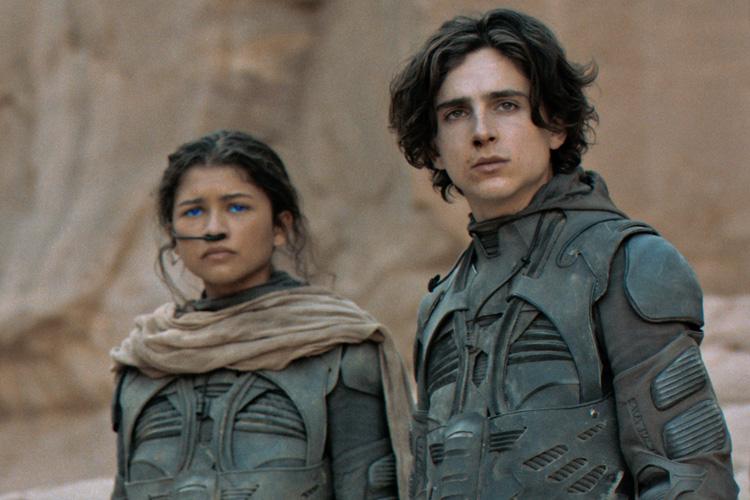
So here, Paul is being proactive. Not in terms of taking care of things before they need to be done, like we typically think of. It’s not about setting your shoes out the night before. No, he’s being proactive by knowing himself, his values, and making choices that are in line with those values. He is living an intentional life based on his own principles. Should we do any different? You are, afterall, the hero of your own story.
As an extension of knowing what he values most, he begins constructing his future life using his gift of prescience, and aiming it at what he desires to be his ultimate end state. Knowing that end state, he walks backwards from there and assembles the pieces of his life (or grains of sand to continue with our metaphor), one by one, so that each preceding piece will lead to the next step on the path towards his goal.
Although we can’t perfectly see the future, we can envision what we want our end state to be or at least what we want 10 years from now, 5 years from now, and 1 year from now. To make them more concrete and to give you a greater likelihood of succeeding, write these down.
Borrowing again from the bullet journal method, you can create a collection of these long term goals. Once you have decided on one of these long term goals, let’s say something one year from now, you can walk backwards from there and establish in your journal when and what needs to happen 6 months in front of that goal to lead you to accomplish it.
This is noted in what the bullet journal method calls The Future Log. In this section, every month for the next year gets its own space with accompanying important things that need to happen. Landmarks, or dunes of sand, if you will. Let’s use the example of running because it’s easy to work with and I like the imagery 😂-
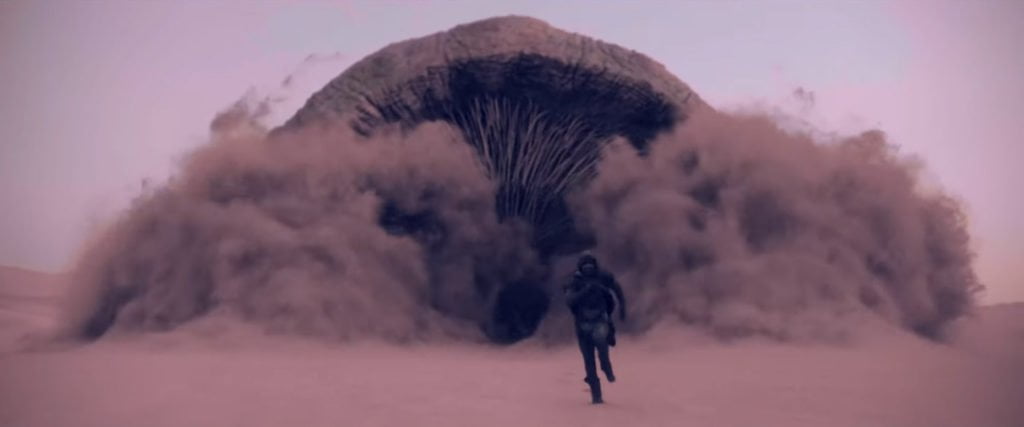
If it is a goal of yours to run a marathon next year, it might be a good idea to run a half-marathon, say 3-4 months before that. And to run a shorter run, say a 10K, several months before the half-marathon.
Let’s say for argument’s sake, that this marathon will be your first and you’ll aim to run it in April of 2023. Now you not only know that you need to run a half-marathon in December 2022, but if you want to continue to grow as a runner, you can plan to run a second marathon in July or August of 2023 and set your sights on improving your overall performance time.
Now you’re looking a year into the future, at least with regards to the areas of health and physical fitness. You can begin to see possibilities branching out of this idea of running a marathon. After your second marathon, one path leads you to continue running races at this distance, looking to better your time and maybe qualify for more prestigious races, such as the Boston Marathon.
Another path has you looking to run ultra marathons, which are anything over the 26.2 miles distance. Another path points you towards other endurance type events, such as cycling, or triathlons. And yet another path has you pump the breaks on running and look towards increasing your strength through weight training, or improving a specific skill like gymnastics.
You can use these two methods, Habit #2, Begin with the End in Mind, and the bullet journal (goals collection and future log) in conjunction with each other to achieve almost any goal. It works great in any area, be it work related, your finances, training or education, or a move to another part of the country. You might say “well that’s a nice idea to schedule out things in the future, but I have so much to do on a daily basis, they’ll inevitably get pushed to the side.”
Indeed, that is a sticky wicket. If you allow it to, that reality where you don’t accomplish what you set out to do will enforce its will upon you and prevent you from achieving your aims. How do you deal with this conundrum?
Habit #3 First Things First
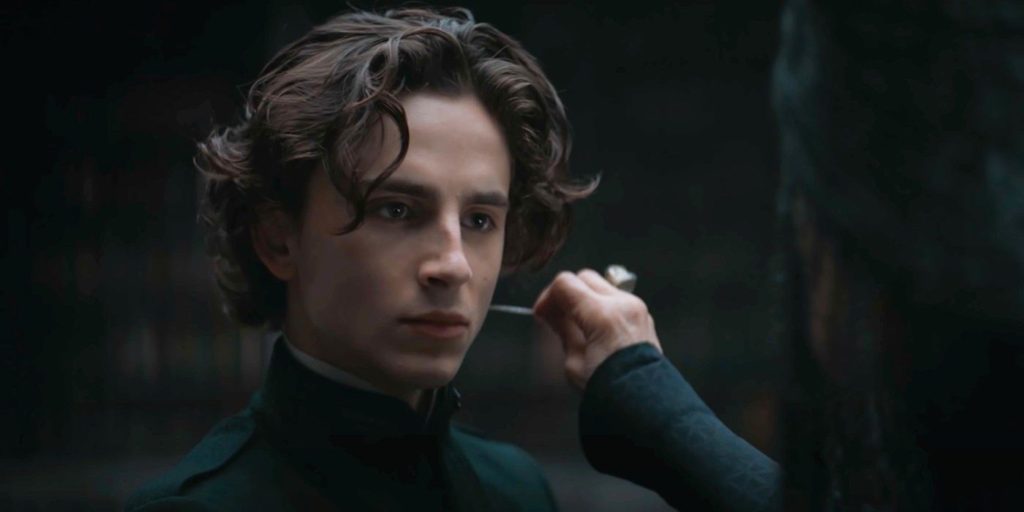
Paul Atriedes is constantly looking to glean more detail and wisdom from his visions. He’s in a race against time, continuing to search for further points of view right up until the climactic scene in Dune Messiah, where time finally catches up to him. Time is precious to us all. We can never get any more of it and we are not guaranteed anything in this short life past the moment of “now”. This is why it’s so important that we lead our daily lives with our priorities in order. Put First Things First is Habit #3 in Stephen Covey’s system.
“No amount of money ever bought a second of time”
Future Howard Stark, as retold by Tony Stark, to past Howard Stark
Although it’s not from the Dune-verse, I’ve always loved the above quote from Avengers Endgame. Perhaps through these first 2 habits you’ve kind of been nodding along in knowing agreement, but now we get to the real stuff, because the truth of the matter is that we know what we need to do. It’s the doing of it that often eludes us. If I could sum up the benefit of Habit #3 in one inescapable, powerfully efficient word it would be this- FOCUS.
If you’ve ever heard of Eisenhower’s Matrix, then you know that sometimes that which is urgent is not the same as that which is important. Important in the sense of it affecting our larger lives that is. If you are to put first things first, you will need to concentrate on your most important and dearly held goals until you achieve them. How do you that? The other underlying and essential part of Put First Things First is to filter your daily activities, tasks, energy, and time spent so that your work is actually leading you towards achieving those goals and not being wasted on things that won’t matter a year from now.
The Daily Reflection

Enter The Daily Reflection, again from The Bullet Journal Method. It is a technique that is going to give you the necessary insight on how you spend your time and energy so that you continue to make deliberate choices that refocus you towards your goals. This activity should occur either once in the morning before getting on with your day, once in the evening before bedtime, or both. It can take as short as five minutes or as long as you wish, but it allows you (or forces you) to take stock of how you’re spending your life.
I prefer to perform this activity in the evening. I look at the tasks I had set for myself that day and also take note of how much time I spent on each. Did I perform the tasks that are my priorities, either because of my values or because they are attached to an important long-term goal of mine? Consistency and routine are what lead to the accomplishment of things.
If I had to make compromises during the day, were they actually necessary? And if so, are they sustainable? What I mean by that is that maybe I skipped my goal associated tasks that day. If I can make that up the next day so that I’m back on track then maybe there’s not too much harm done. Perhaps it was a special circumstance, not to be repeated.
On the other hand, it can be worthwhile to look back across the past week or month and see if there are any negative trends occurring that will set us back from accomplishing our goals long-term. If you note that every week for the past 3 weeks, you’ve only done 3 of the 4 workouts in your program, then that is not sustainable, and this trend may keep you from achieving your goal. Look through your schedule and see what can be eliminated or adjusted to ensure that you stick with what matters. That you put first things first.
The daily reflection brings you back to center. It is only natural that sometimes we are going to have to deal with emergencies or maintenance tasks that get in the way of our goals. The daily reflection helps you to regain that focus that often can be really fragile and easily lost. But you’ve got to do it everyday. Personally, I have noticed that during those periods where I stalled on my goals or even regressed, it occurred because I got distracted and then didn’t make the effort/time to check in with myself via the daily reflection. It should be an appointment with yourself that you always keep.
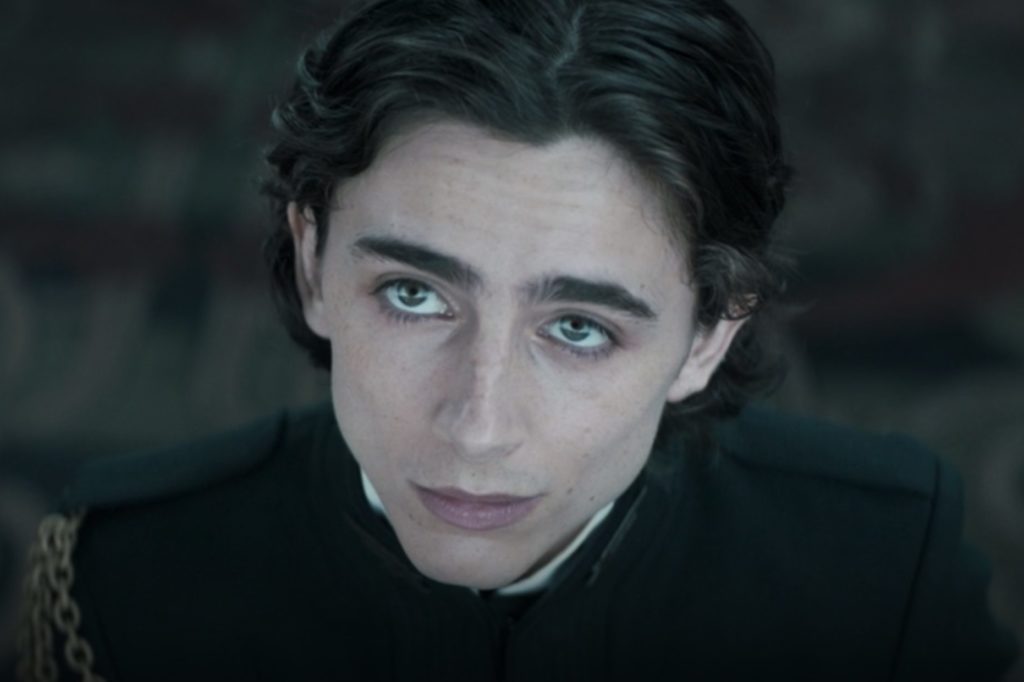
Let’s take this one step further. The daily reflection has the potential to be extremely valuable, but it will mean different things to different people. If you perform the activity as noted above and stop there, then that’s okay. You’ve taken care of the mechanics of evaluating what has happened and what needs to happen to keep you on track.
However, as you go through your list of tasks you have the opportunity to question why you are doing certain things. Maybe certain tasks don’t actually need to be completed at all. Or maybe they can be handed off to someone else to do. Which things and activities are helping you to live your life in line with your principles? Which things are getting in the way?
If you are bullet journaling or keeping a to-do list, you’ll need to migrate uncompleted tasks to the next day (if you deem them worthy). Are you spending too much time on things that aren’t the big things you really care about? Is that because of outside influences such as family or friends? Peer pressure from work? Or something internal?
Performing this process regularly can allow you to get to know your priorities better, strengthening Habit #1. If you continually put something off, is it really that important to you? Maybe you originally liked the idea of something, but actually dedicating time and energy to it is not that important to you. Strike it out! And make room for that which you truly value.
If something you are procrastinating on IS actually really important to you, the daily reflection again gives you the chance to evaluate what is really going on. Are you fearful of failing? Maybe you’re fearful of the attention that success will bring with it? Do you need to seek out the advice of a trusted friend or mentor? Try writing your thoughts out free form. It may help to unload them onto the page as well as give you ideas about how to proceed. Ultimately, the real value of the daily reflection is in helping you to know yourself better.
Putting first things first is where the rubber meets the road. It’s where you actually perform the work, rituals, and tasks that will get you from point A to point B to point Z and beyond. It’s where you take the path you planned in Habit #2 and execute it. And if you can successfully do that you will be leading a life that YOU have decided is meaningful to you.
Conclusion
Just as Paul is continually discerning how best to adjust his path even as it unfolds, we need to be open to changing our well laid plans. Even if we had Paul’s prescience we cannot control everything and that’s okay. As Eisenhower so famously mused, “Plans are worthless, but planning is indispensable”. If you enjoyed this article you may find value in strengthening your self-discipline, which you can do here. Thank you for visiting! If you love Dune like I do, be sure to check the site in the future for more Dune related content. Till then, “the spice must flow!”
